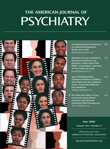This book, written by clinicians and researchers in the United Kingdom and edited by Dr. Day, Senior Lecturer in Addiction Psychiatry at the University of Birmingham, consists of 22 chapters, each touching on a different area relevant to the practice of addiction medicine. The scope of the chapters is broad and ranges from a summary of what works in treating persons with substance use disorders to the treatment system in England, including also a discussion of stimulant use, adverse effects of khat, pathological gambling, laboratory testing, treatment of patients with dual diagnoses, motivational interviewing, substance misuse in adolescents and pregnancy, legal defenses in substance-related cases, and the role of forensic psychiatry in addiction medicine. The scope of the areas that are addressed and the information that each chapter presents is a wonderful overview of the growth of addiction medicine over the past 50 years. Each chapter contains recent information and many details that will be of interest to a wide range of practitioners, both within the United Kingdom and elsewhere.
Of special interest to me were the excellent chapter on stimulants, the discussion on emerging efforts aimed at reducing the reincarceration of drug abusing criminal offenders by expanding access to treatment in the criminal justice system, and the discussions of studies showing that integrated care is the most effective way to deliver services to patients with co-occurring psychiatric and medical disorders. On the latter topic, the authors emphasize the need to better involve primary care physicians in screening for substance-related problems and referring patients who have a substance use disorder to treatment, but without the expectation that this process will decrease the need for specialty care. The inclusion of a chapter on pathological gambling and the similarities that are drawn between its clinical features and those of substance dependence might be of particular interest to those working on DSM-V, in view of the longstanding uncertainties about whether this condition should be classified as an addictive disorder.
A final area that I found of particular interest was the discussions found in various chapters about the mechanism by which national efforts are being made to improve the treatment system in the United Kingdom. These efforts are reflected in the work of various commissions who are charged with addressing specific topics and making recommendations based on a review of published studies. It is difficult for an “outsider” to understand the degree to which the recommendations are carried out, but it was interesting to read about how England’s National Health Service seems to be a vehicle through which systematic, evidence-based recommendations to improve treatment can be coordinated and implemented on a national level.
This book presents a great deal of specific, current, and clinically relevant information on a wide range of topics that are relevant to the practice of addiction medicine and is likely to be of interest to clinicians, administrators, and researchers. In addition, this book makes the reader think about the potential of a national health care system to implement evidence-based medicine, improve treatment for persons with substance use disorders, and improve public health.

